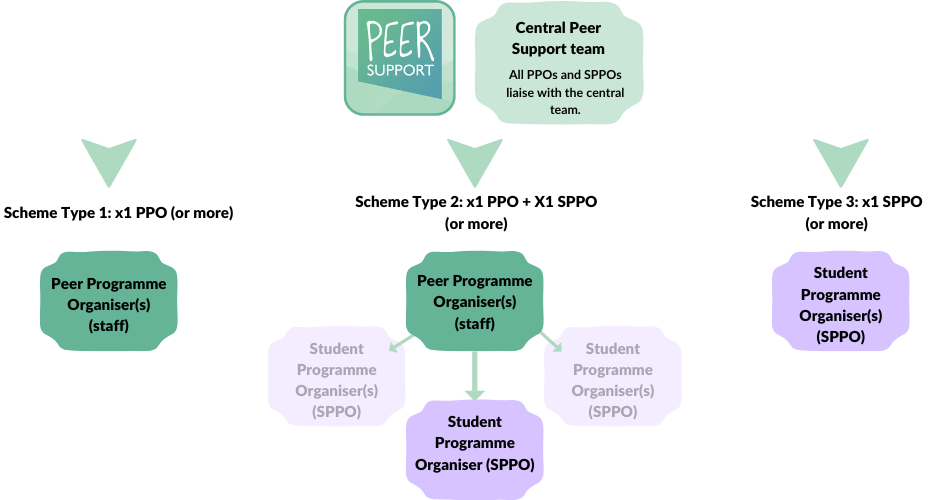Set up a programme
Peer Programme Organisers can be staff (PPOs) or students (SPPOs) who take on the responsibility of leading a programme supported by the central team (see 'What does our team do?').
The key responsibilities of a Peer Programme Organiser or Student Peer Programme Organiser include:
- Recruiting suitable Mentors
- Assigning Mentors to a Mentee or Mentee group
- Ensuring Mentors complete the mandatory Peer Mentor Workflow tasks, and complete the entire Workflow where applicable
- Regularly communicating and checking-in with Mentors and Mentees, including for feedback sessions as part of scheme evaluation
- Attending termly Peer Programme Organiser (PPO) network meetings and scheduled meetings with the central Peer Support team
The Peer Support Team provides central coordination and support to all Peer Support Programmes taking place across the institution. This support includes:
- Advice and guidance in developing and launching your programme
- Provision of an online Peer Mentor system which incorporates recruitment, training, development, resources, and recognition for your Peer Mentors
- Oversight of the Peer Mentor HEAR recognition process, which undergraduate Exeter students can attain if they complete all stages of the Workflow
- Central coordination of stakeholder networks, e.g. Programme Organiser Network and regional Peer Support networks
We also coordinate a number of our own schemes, such as the Mature Student and Disabled Student Peer Mentoring schemes. Find out about these on the Success for All Sharepoint.
If you are interested in setting up a Peer Support Programme for a module, discipline, Faculty or student cohort, then there are various factors to consider, such as:
- What are the programme aims?
- When will Mentors and Mentees be recruited?
- When will the scheme run?
If you are a member of staff or a student who is thinking of introducing a Peer Support Programme, email us at peersupport@exeter.ac.uk. The Peer Support team will respond with more information and send you a ‘development form’. This form helps us find out more about your aims and helps you consider these factors. We can then arrange to meet you to suggest how these can be successfully achieved.

